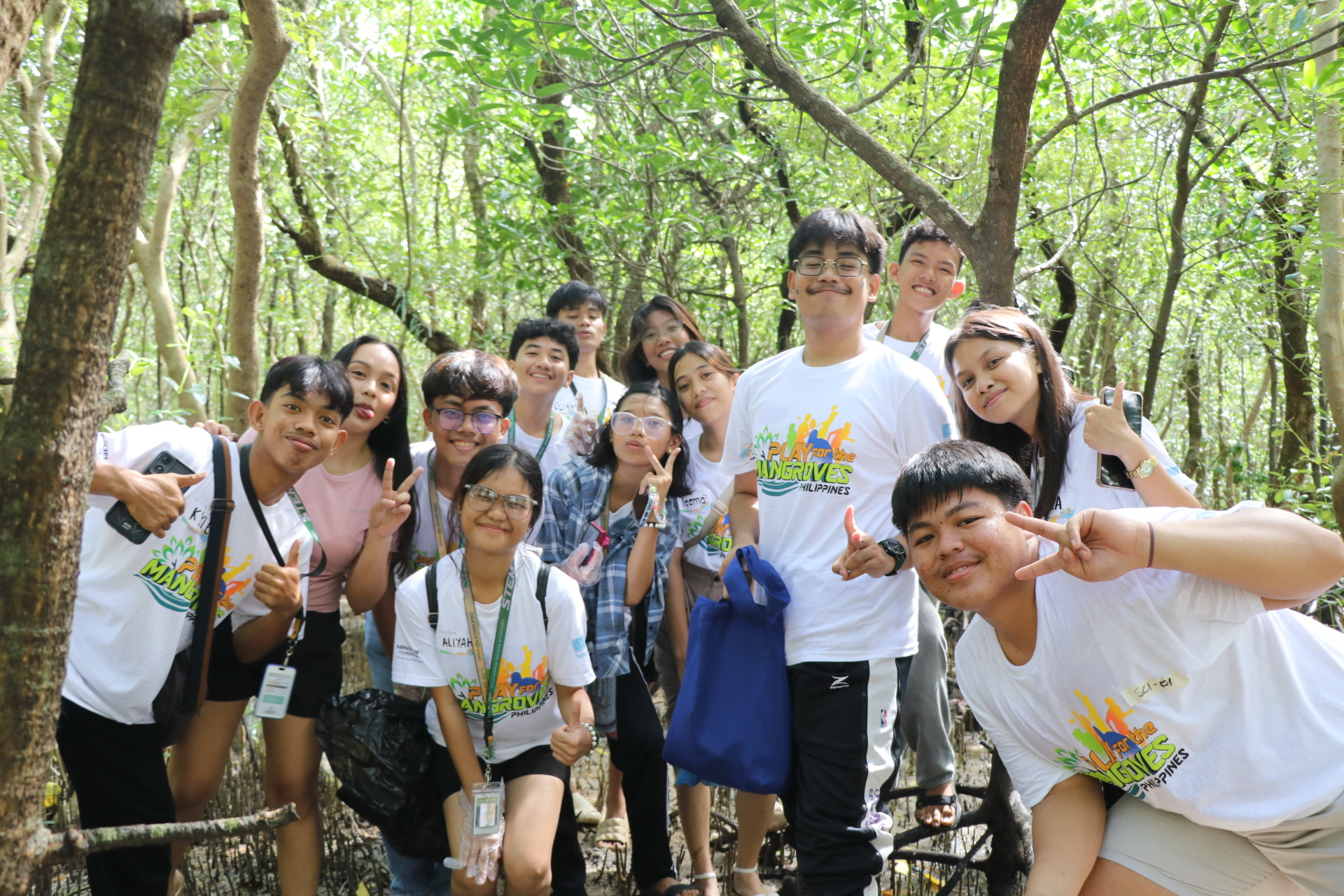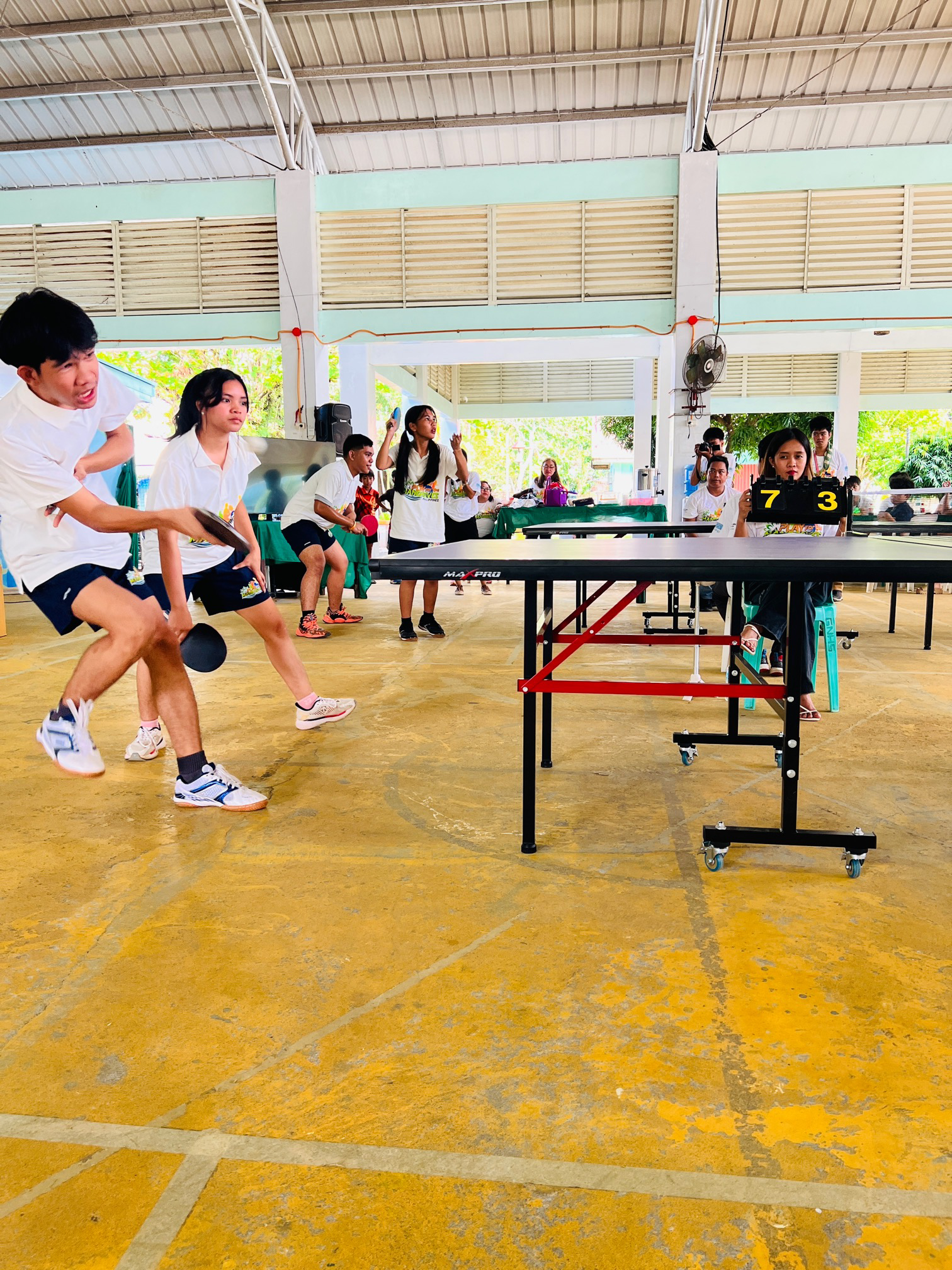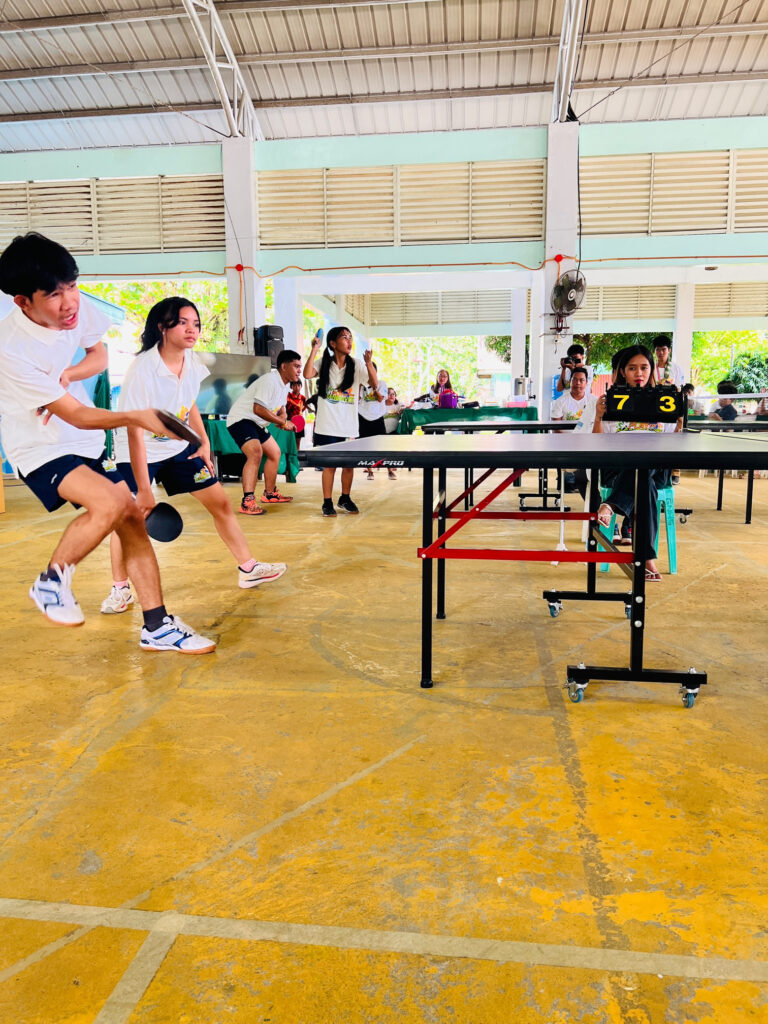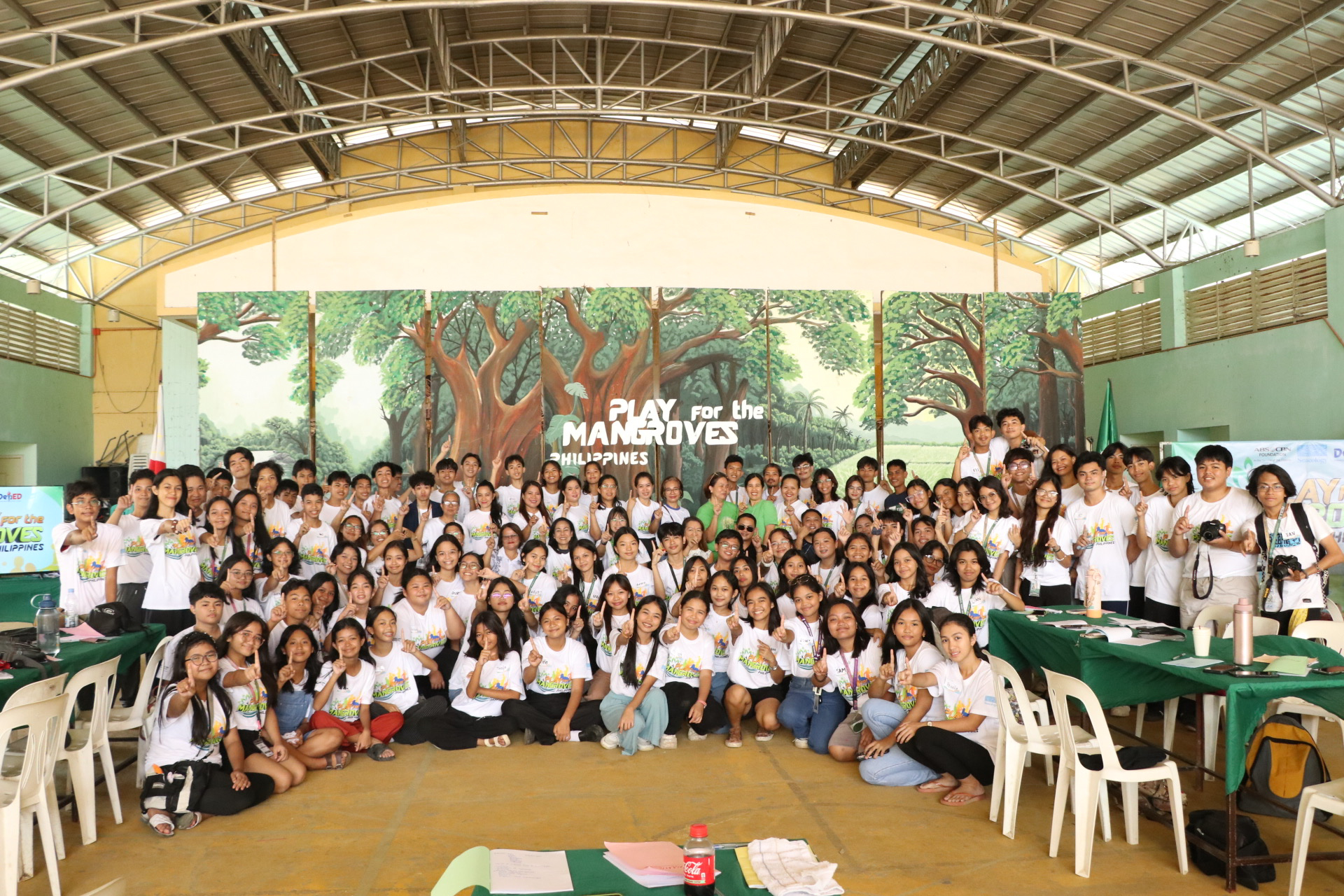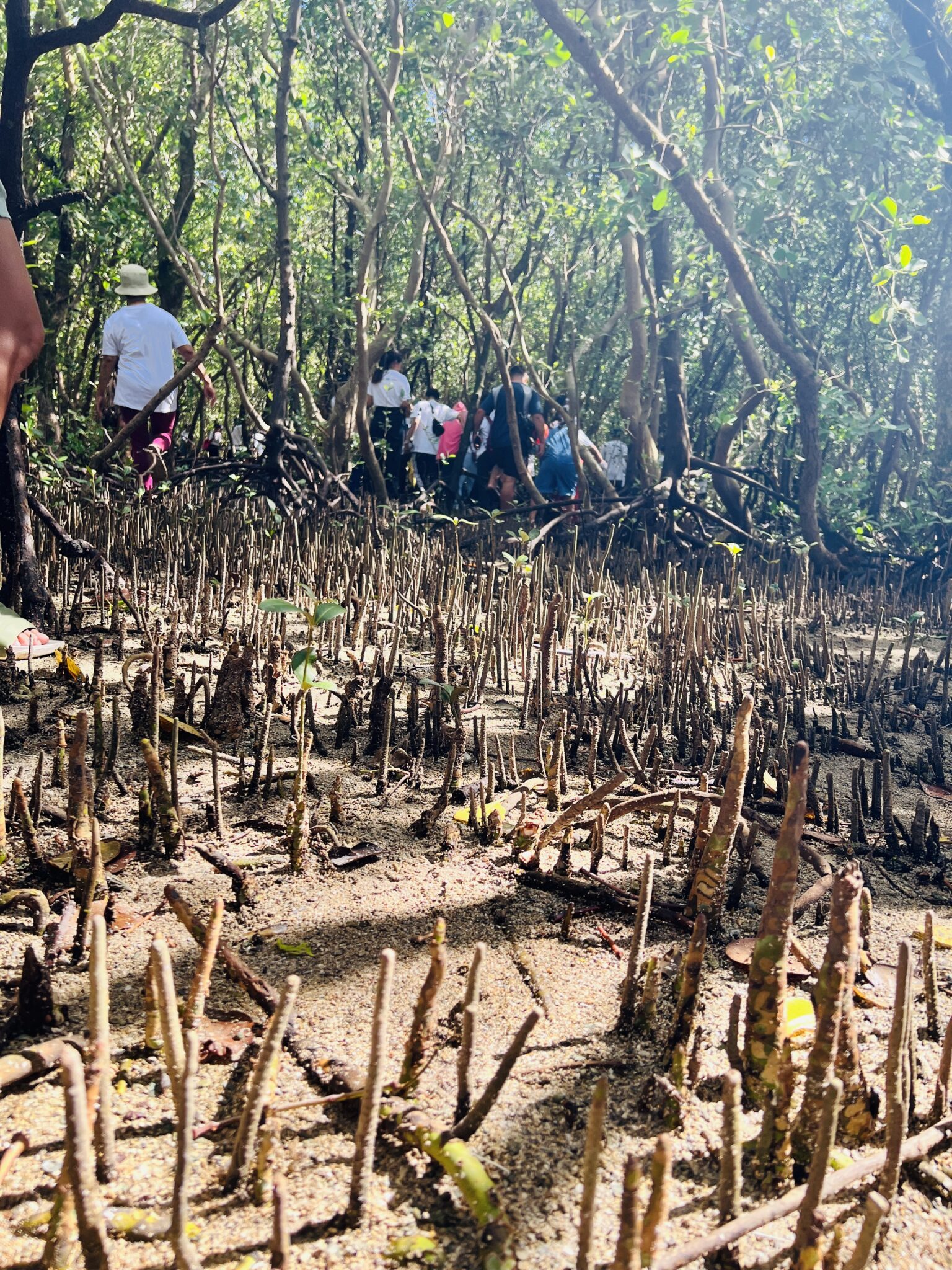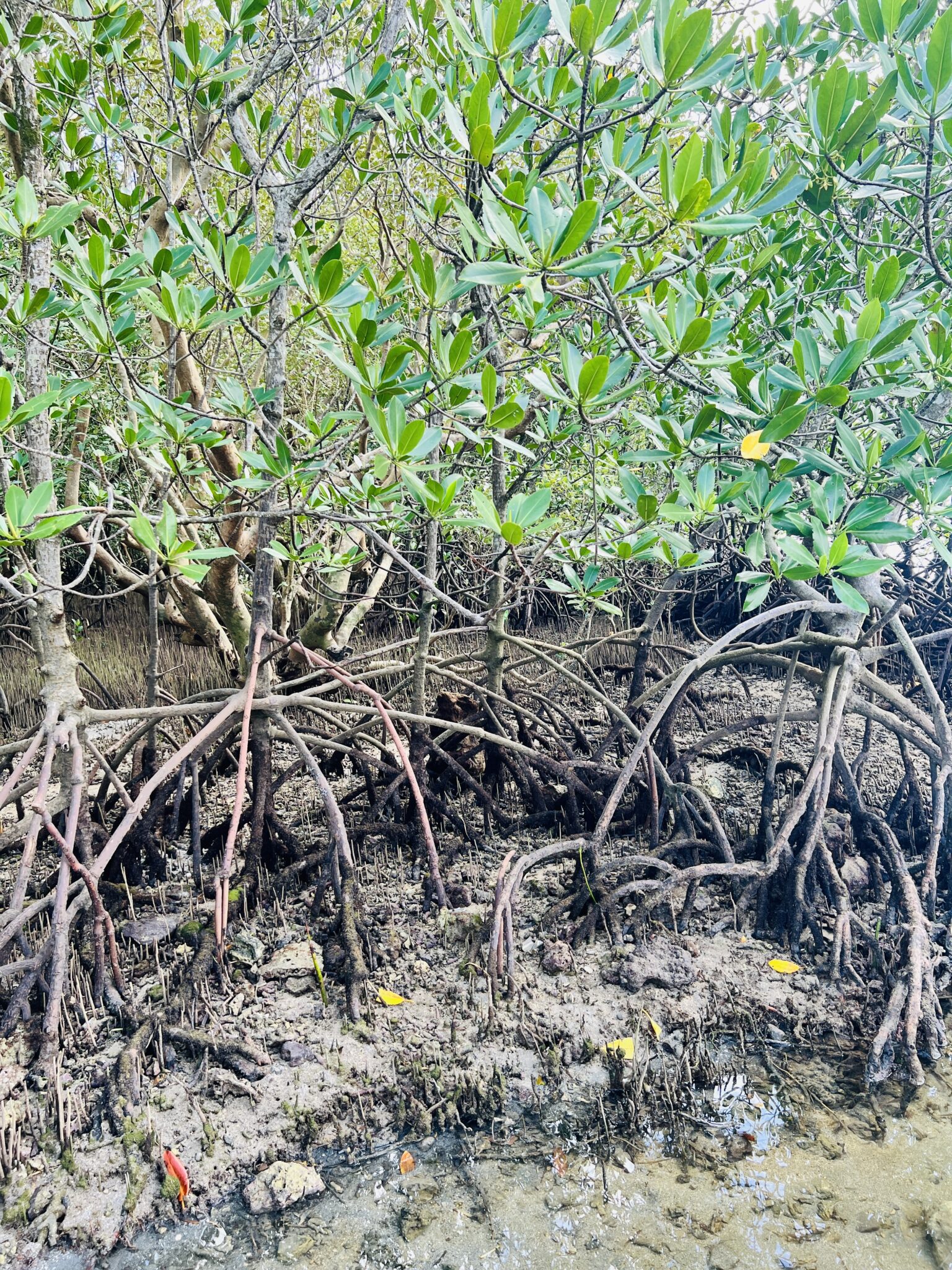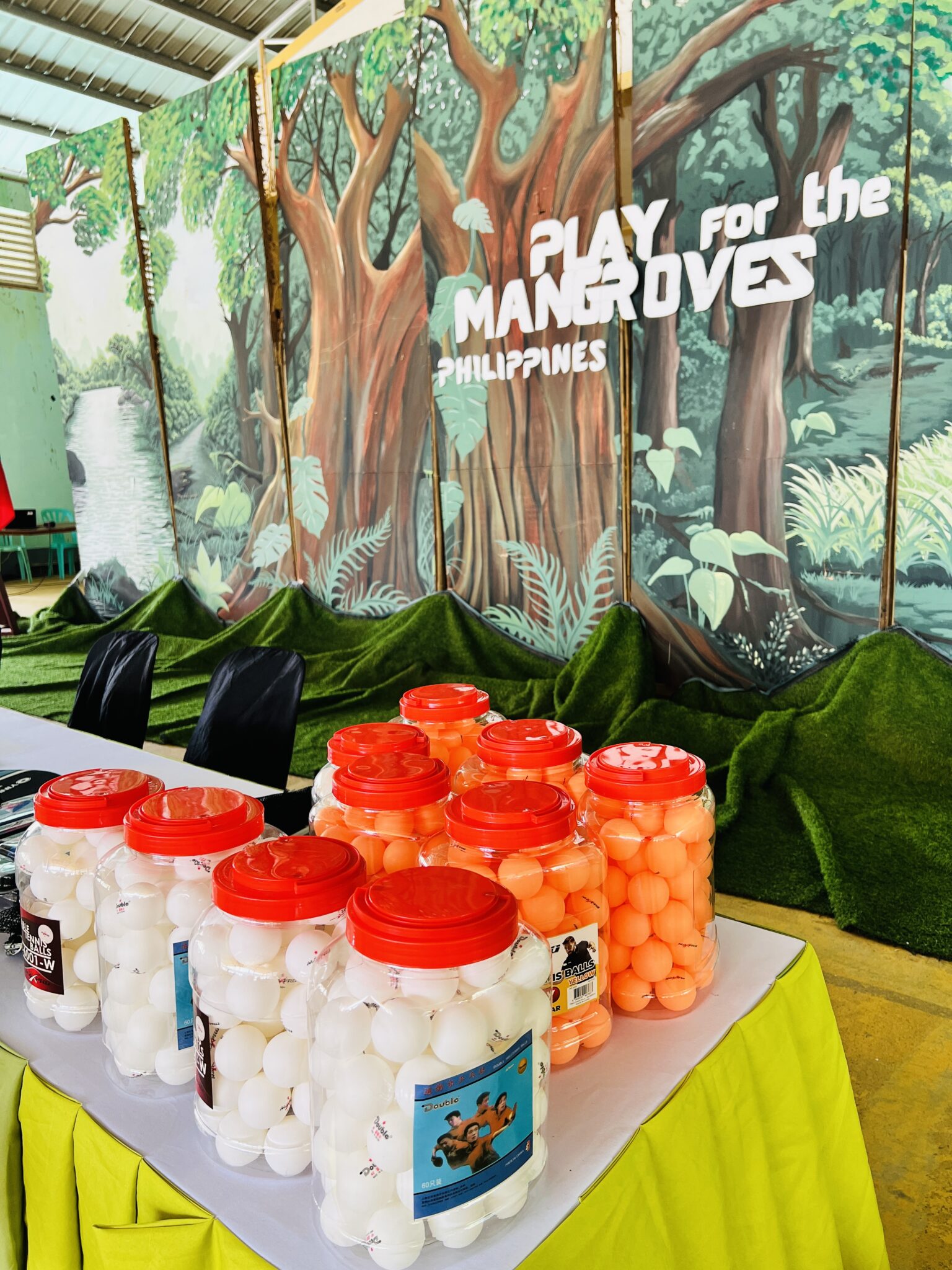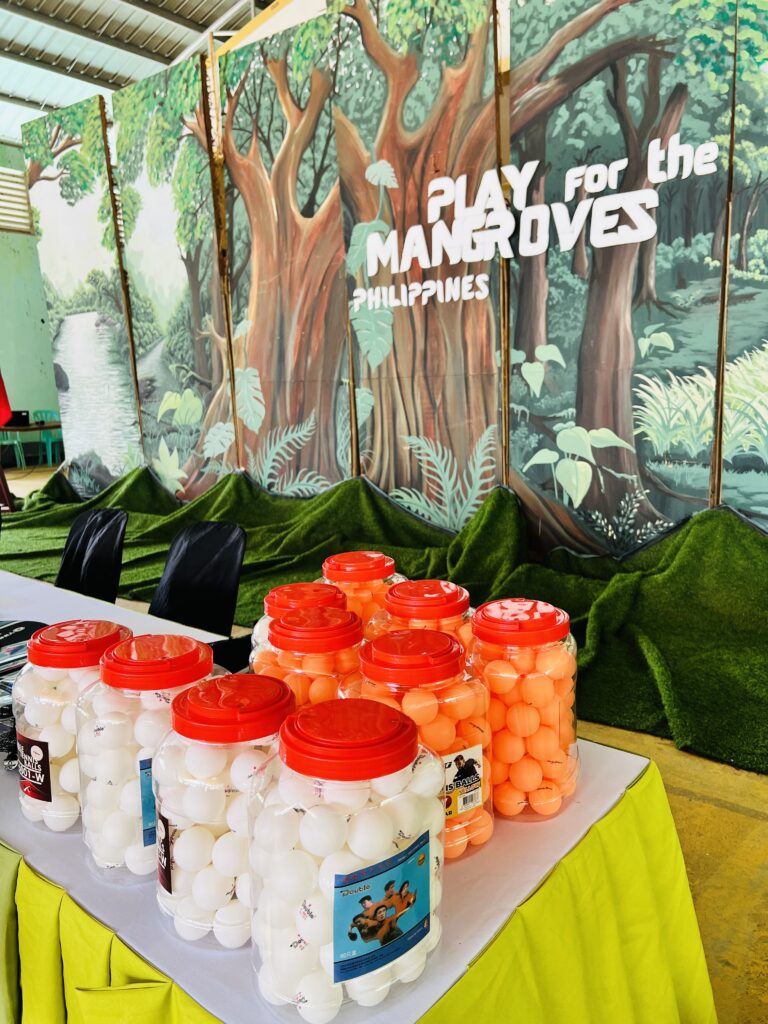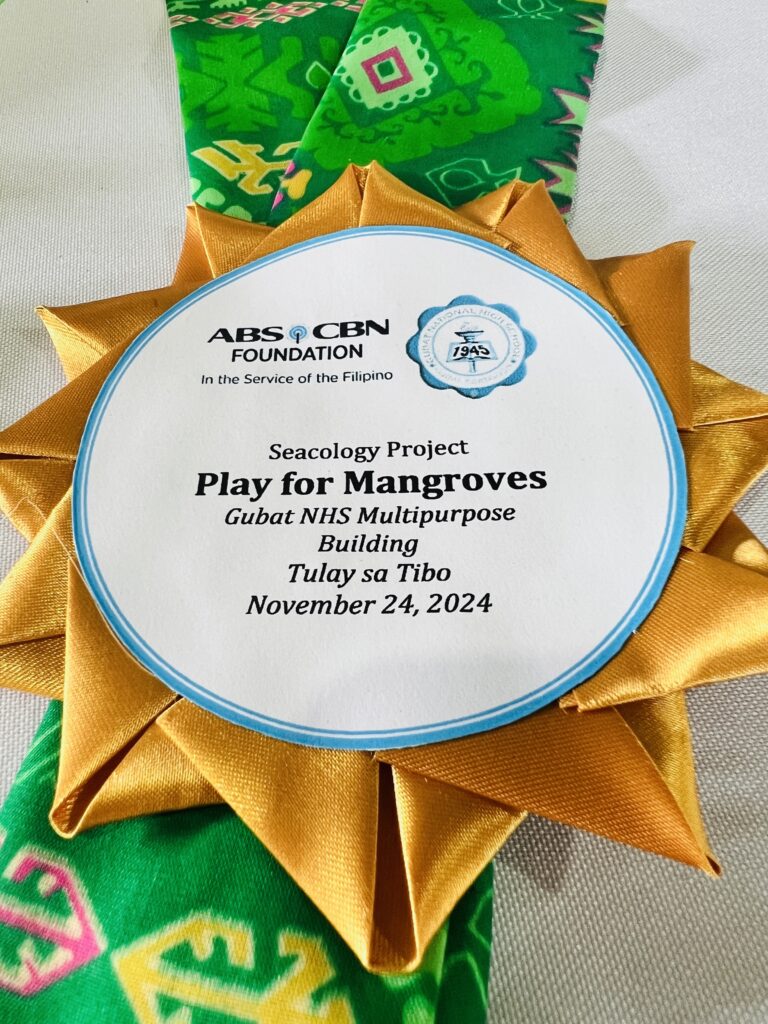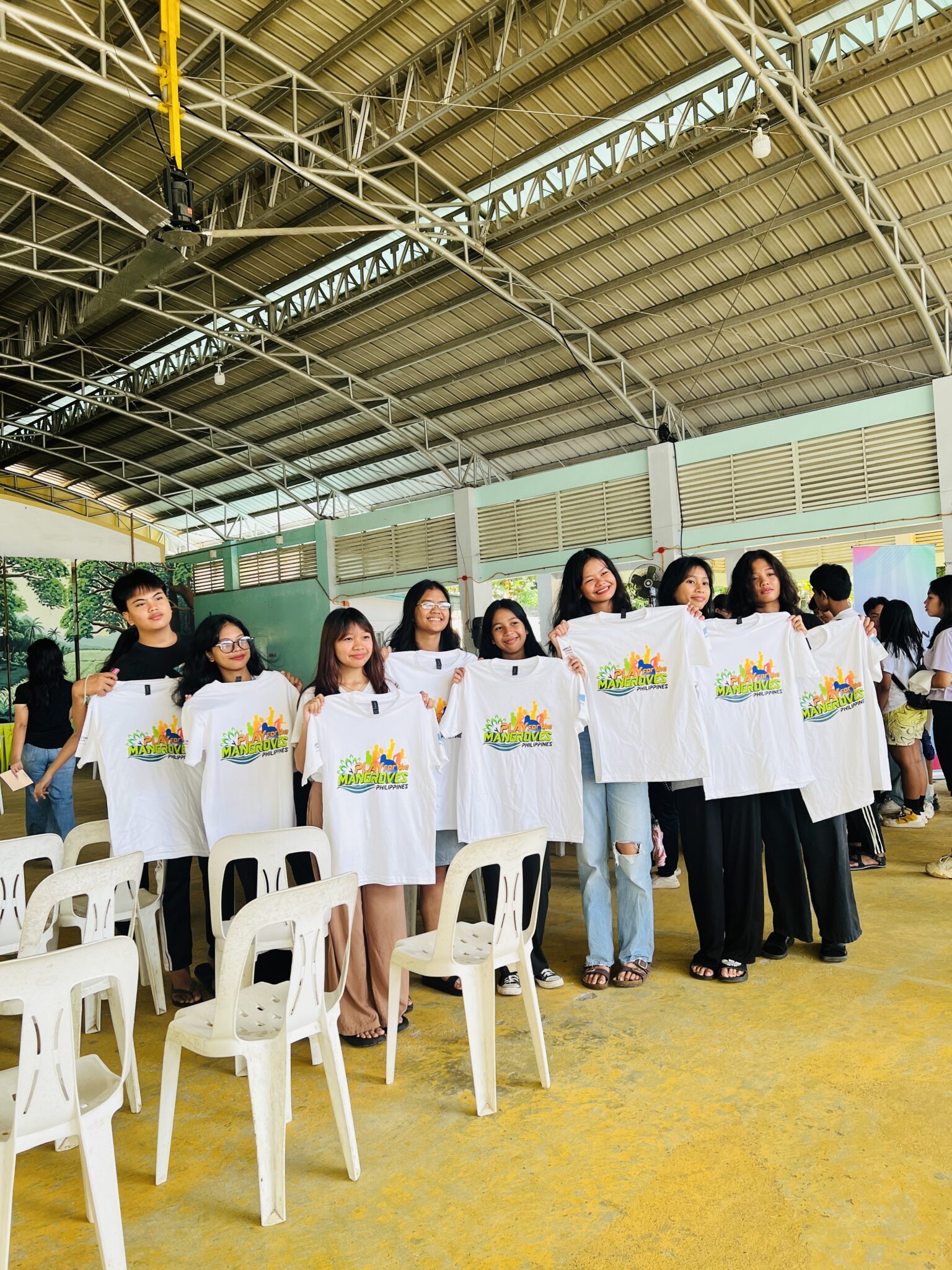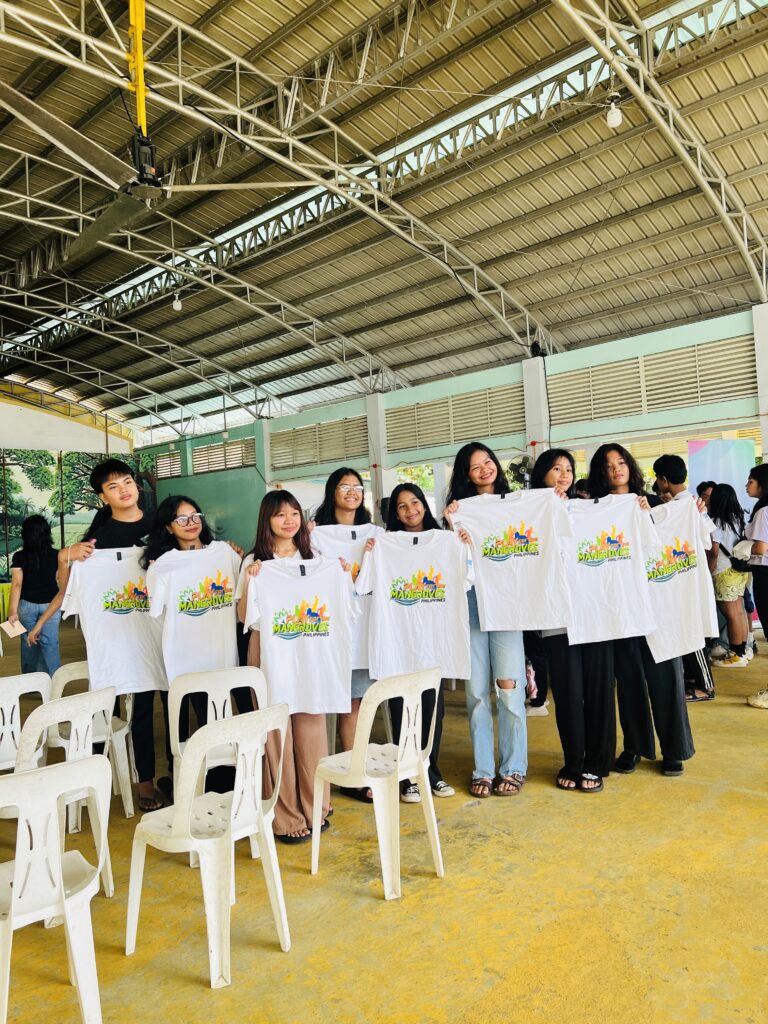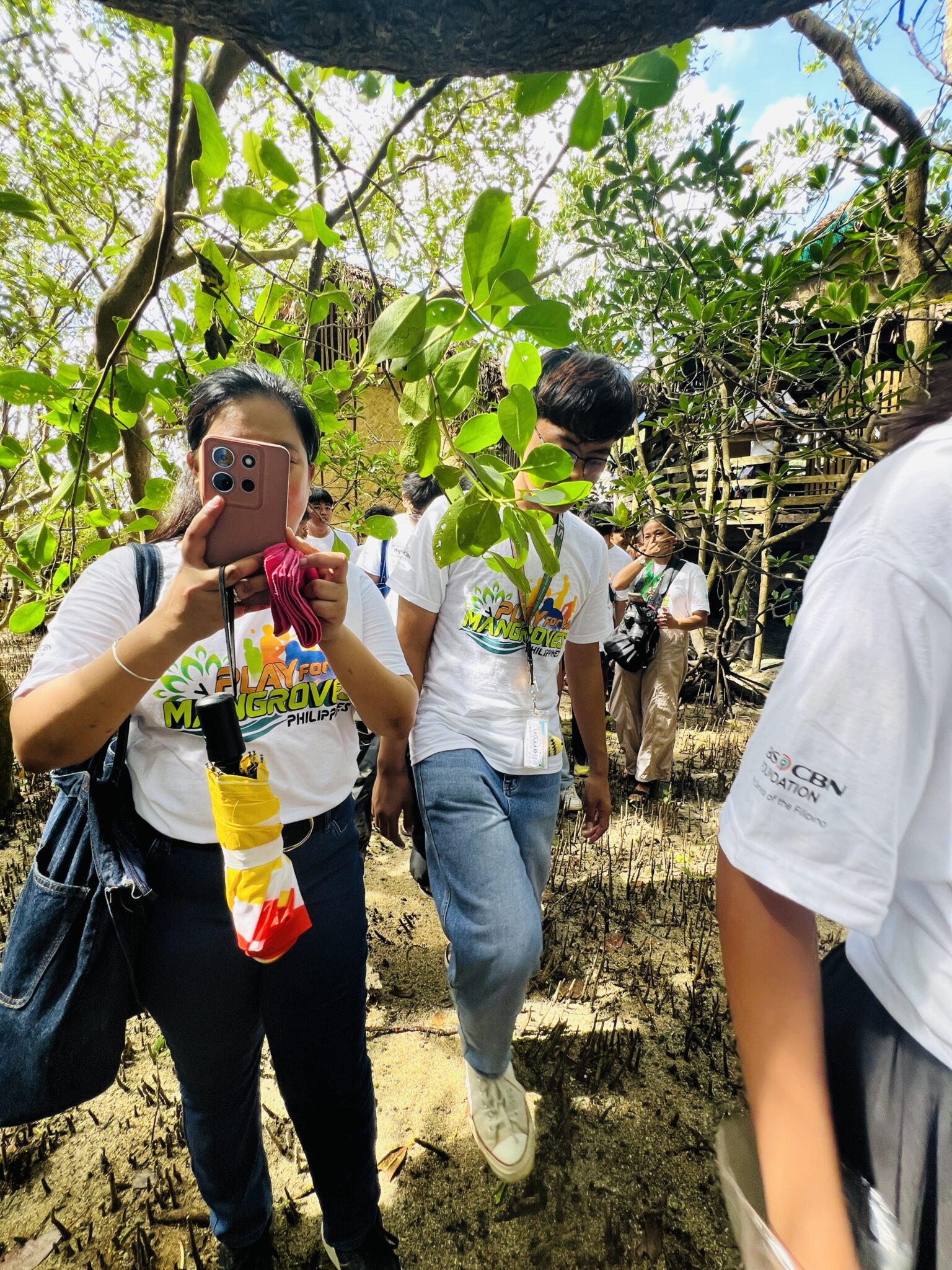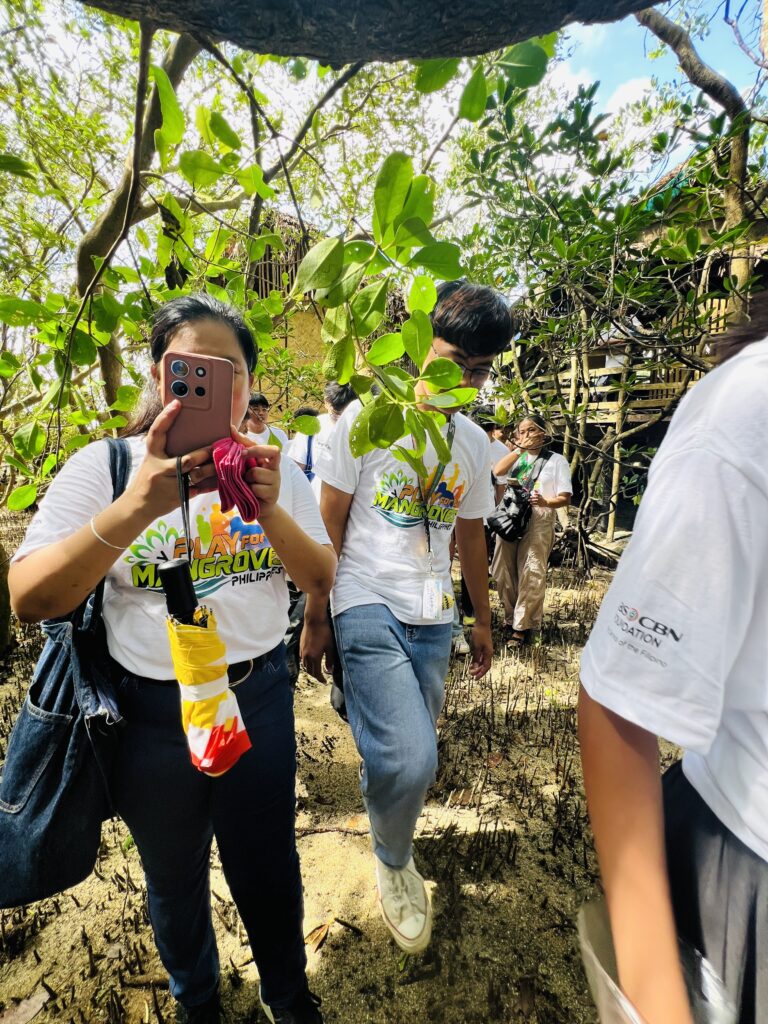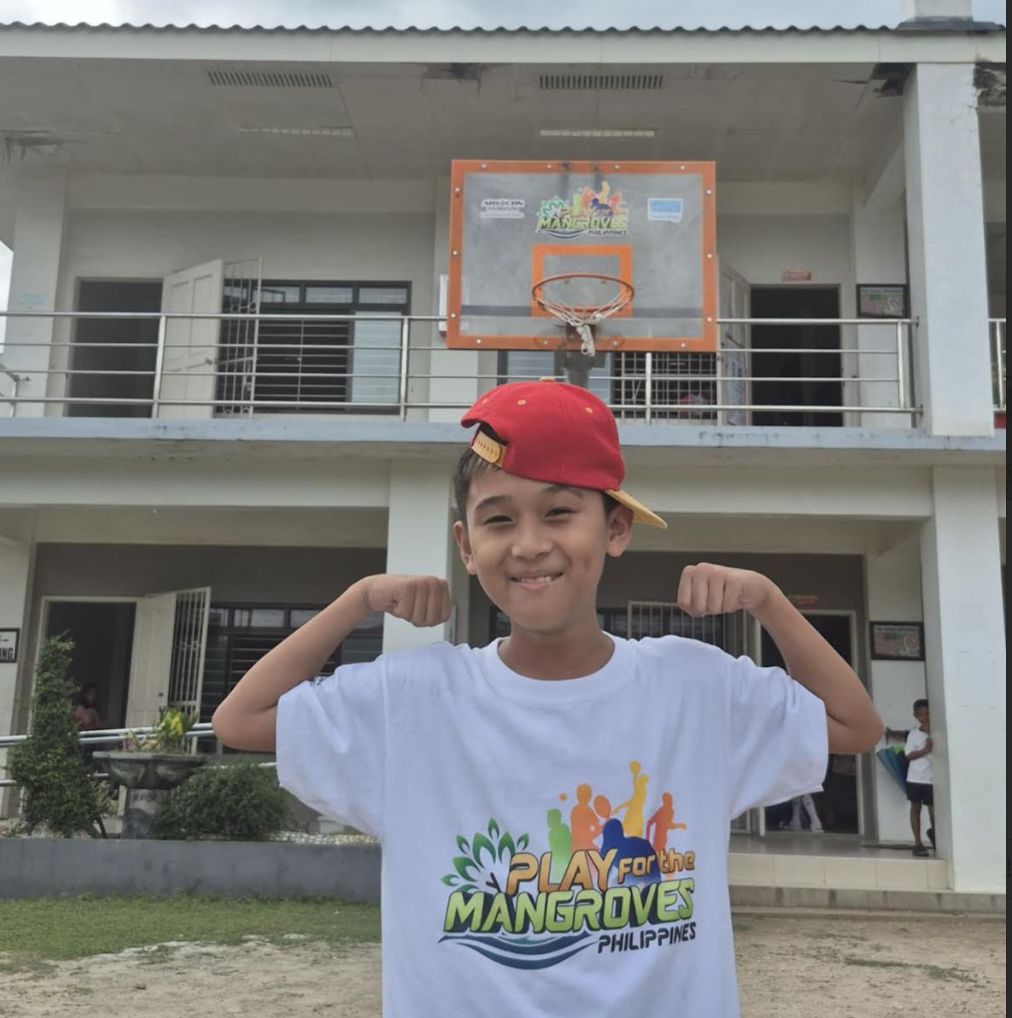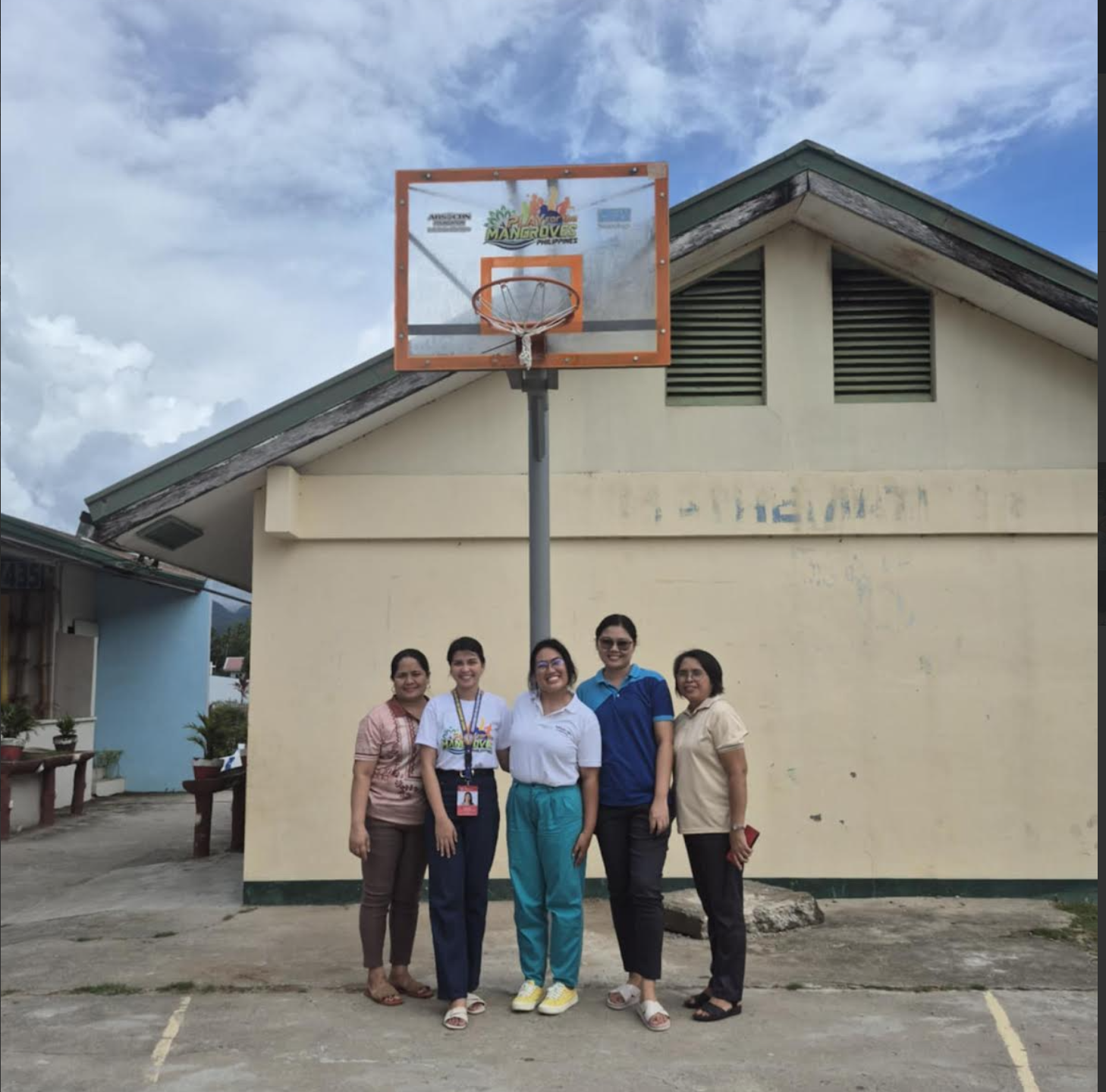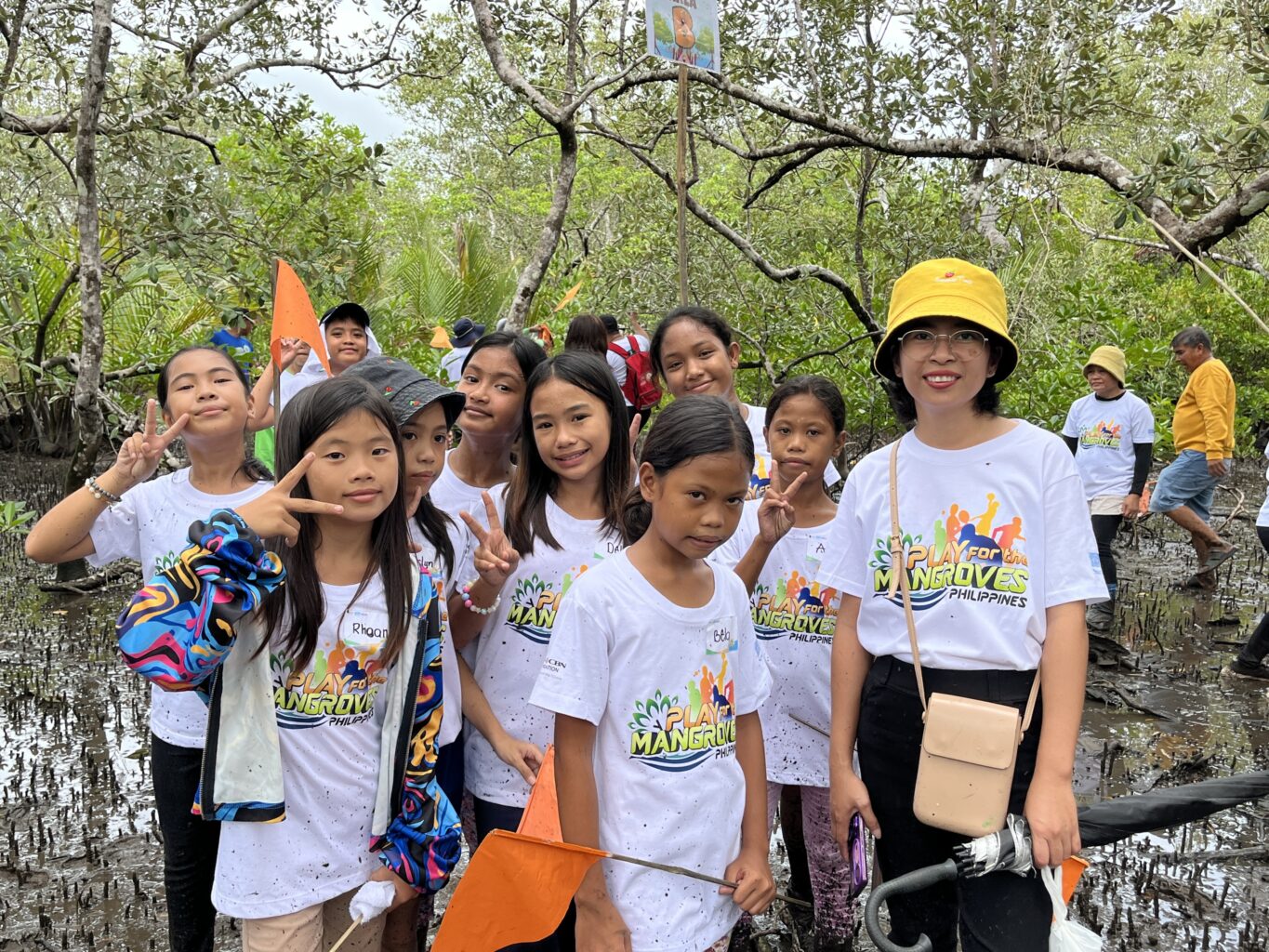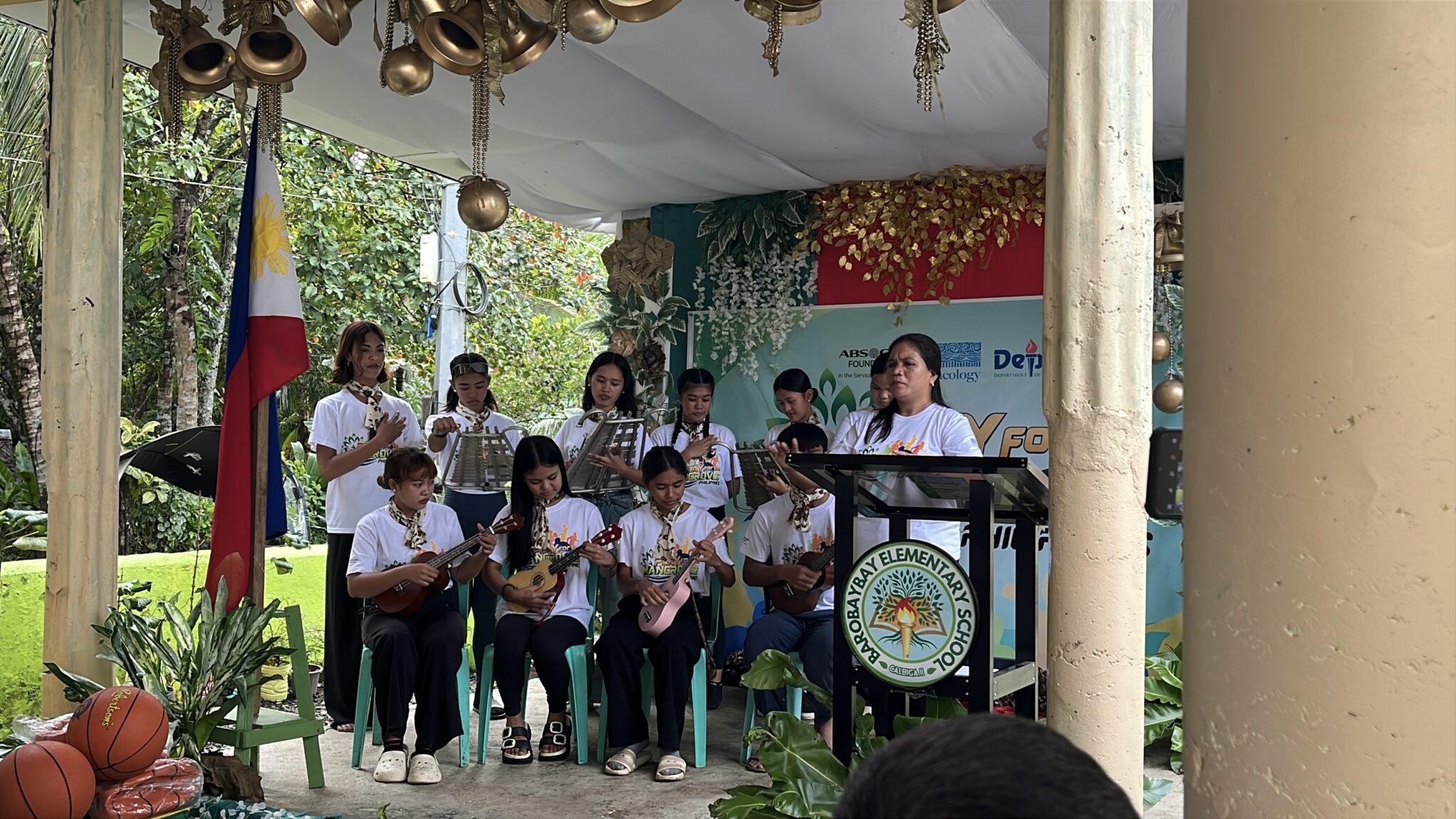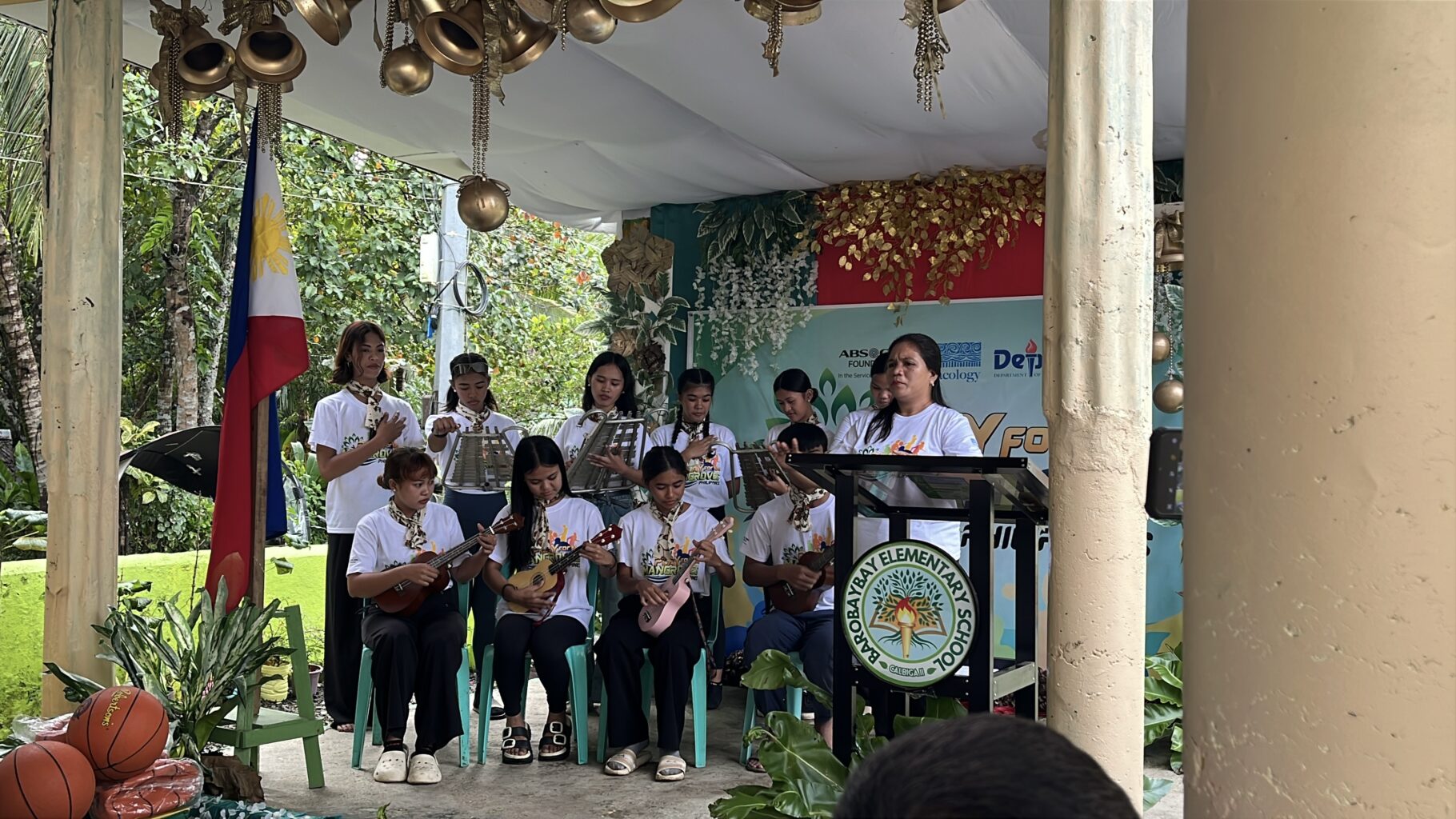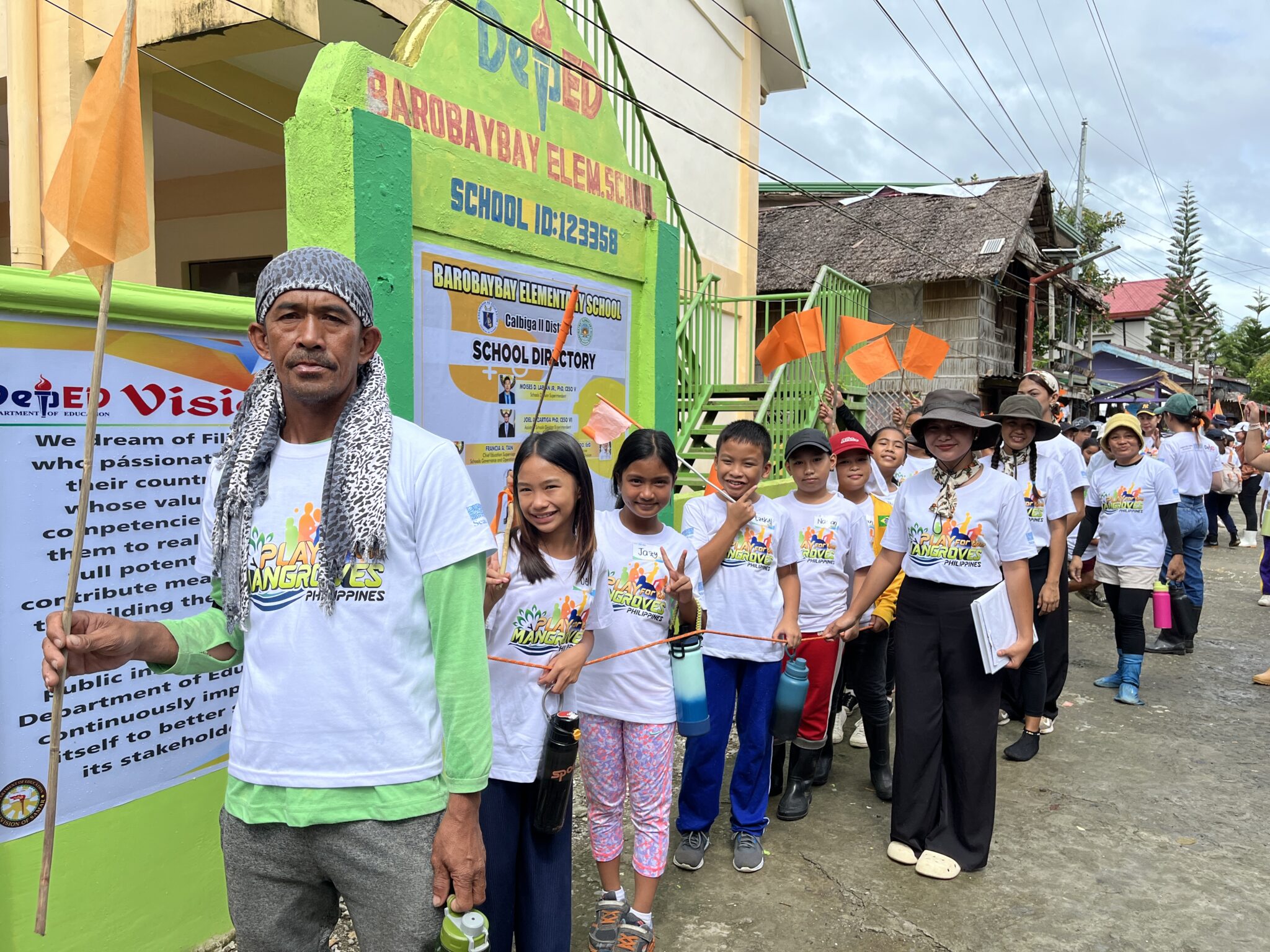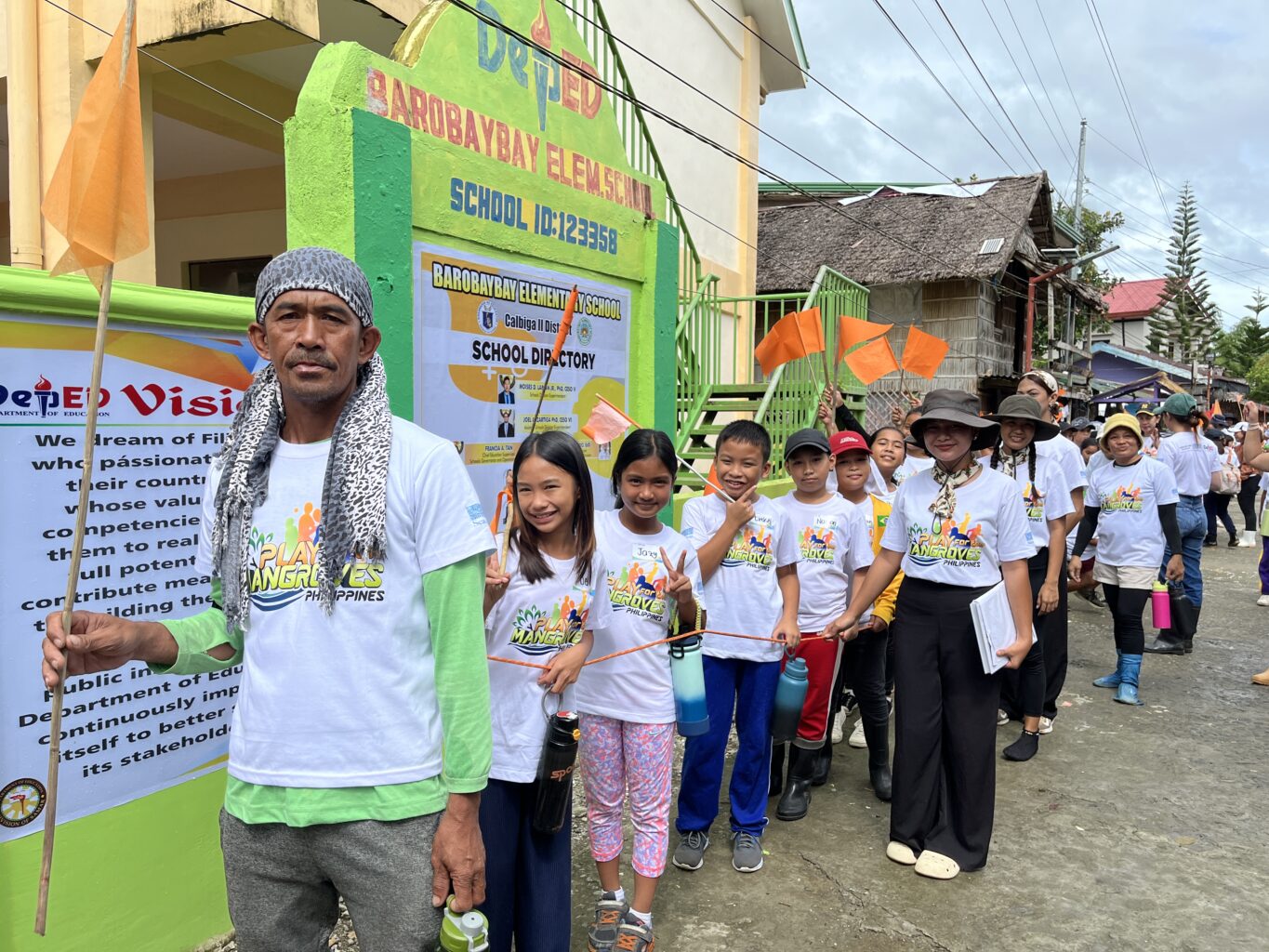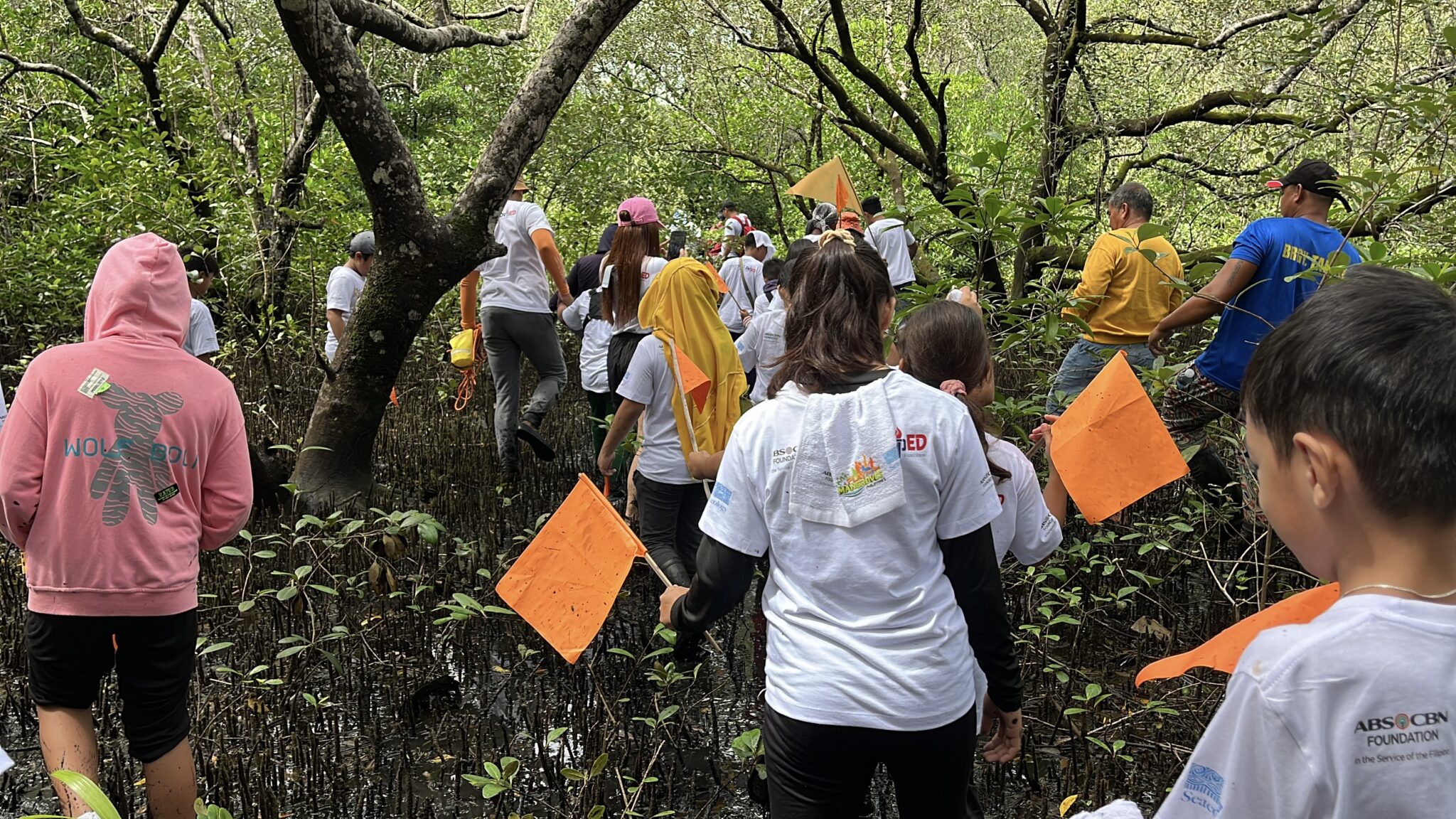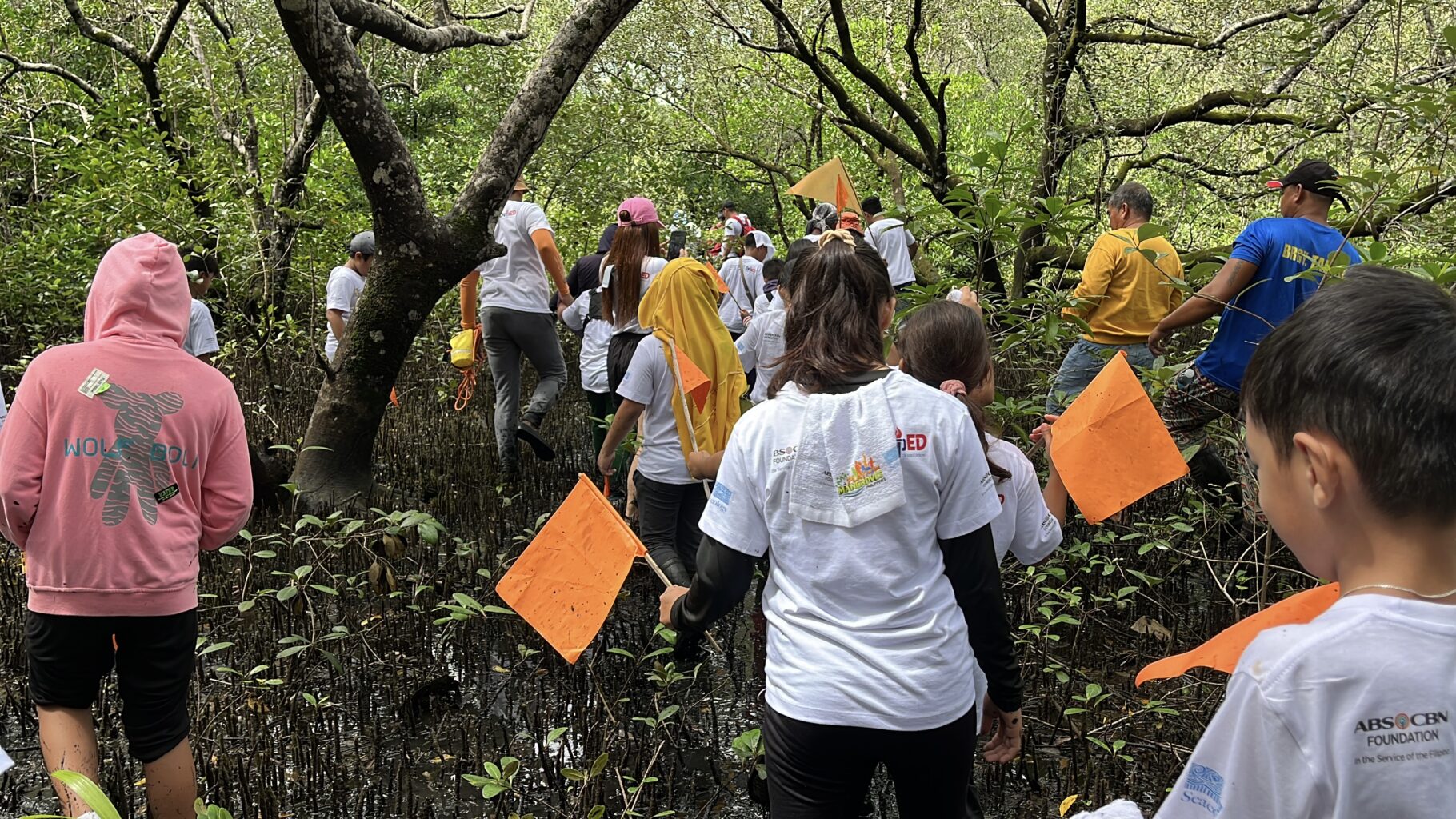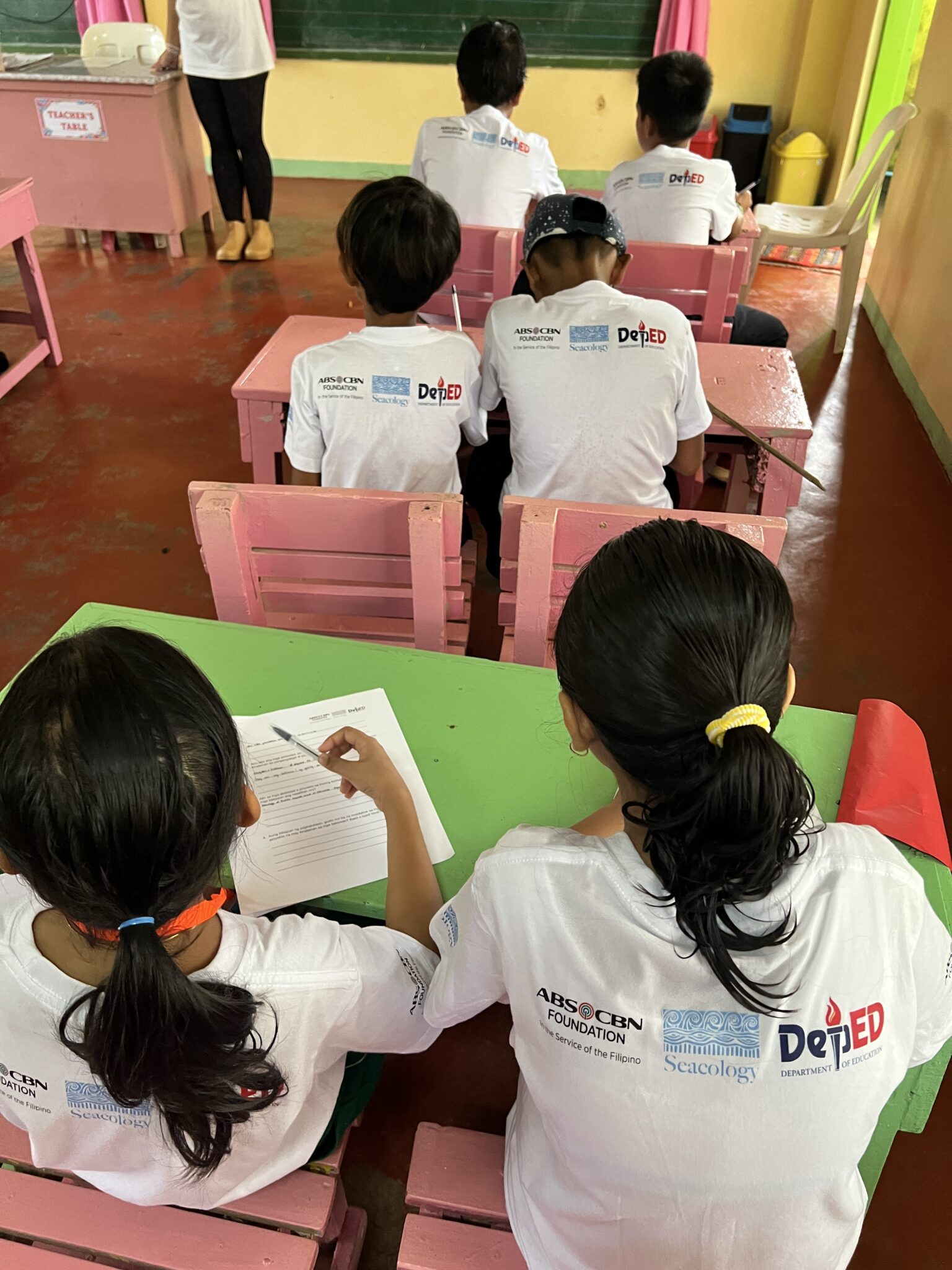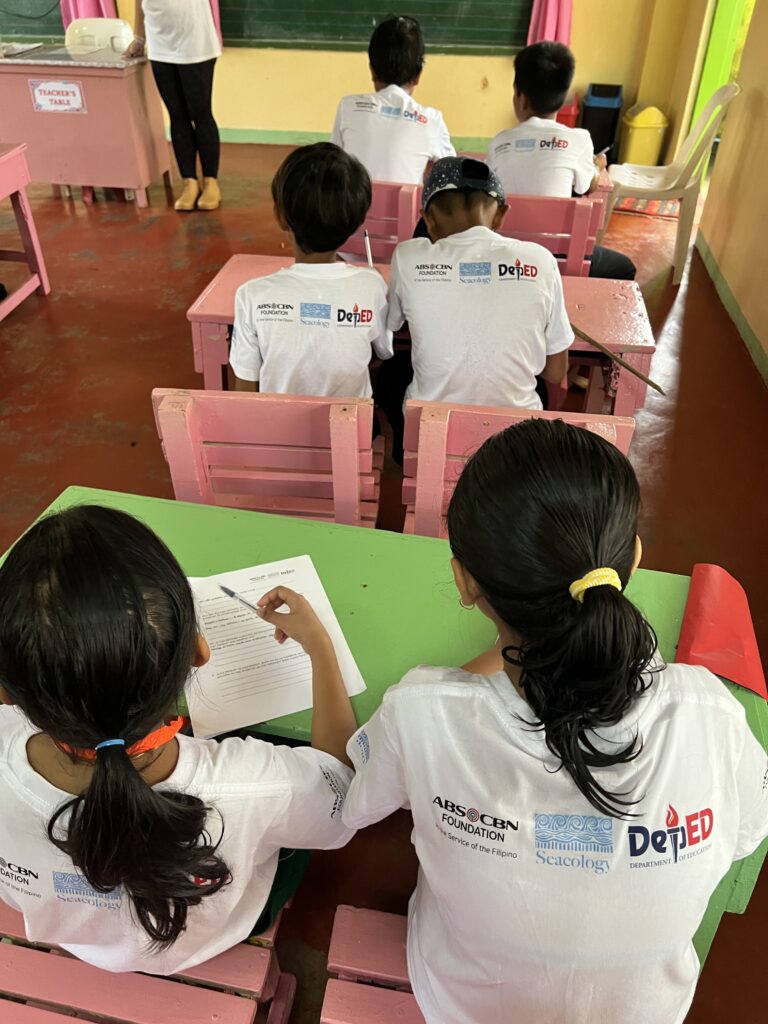We are expanding Seacology’s Play for the Mangroves, which pairs mangrove education with sports, to the Philippines! We chose the Philippines for a couple of reasons. First, it is a nation of more than 7,000 islands, which are home to 46 mangrove species. Just as important, sports play an important role in kids’ lives there.
Seacology provides sports equipment–and fun, hands-on environmental education. Many young islanders don’t know how important healthy mangrove ecosystems are. These programs teach them how mangroves reduce storm damage, nurture reef fish, and support locally based ecotourism. They also learn that mangroves fight global warming by storing huge amounts of carbon. And that because mangroves grow on coasts near towns and cities, they are in constant danger of being destroyed by human activities.
Play for the Mangroves began in the Dominican Republic. Kids get baseball and volleyball equipment and training, plus hands-on environmental education. Kids there are enthusiastic about all aspects of the program. Sure, they love the games and gear—but they also show great interest and pride in their local environment. At Play for the Mangroves events, teenagers cheerfully wade through the water to plant tree seedlings and vie to answer questions about mangrove ecology.


